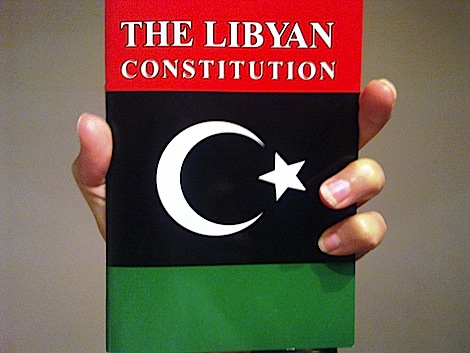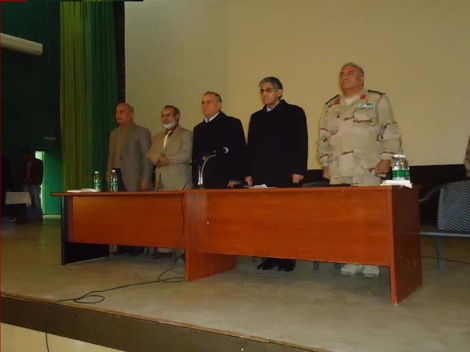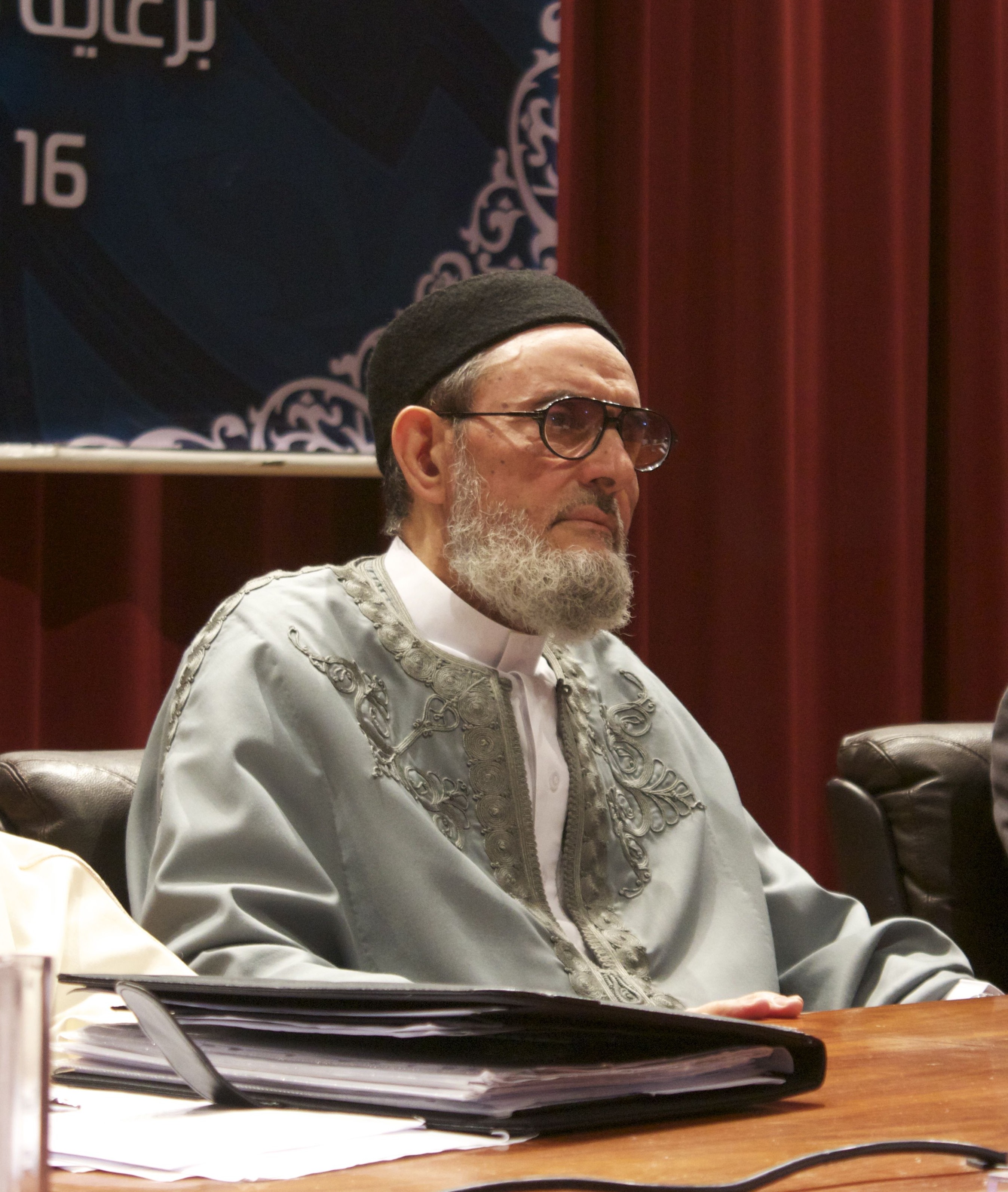By Lorianne Updike Toler.
New York City, 30 December:
The turbulence . . .[restrict]and controversy surrounding the production and ratification of Egypt and Tunisia’s draft constitution is proof that not all constitution-making processes are made equal, nor should they be left to chance or political circumstances.
Yet if Libya can learn from its own and world history and the mistakes and successes of its neighbors, and galvanize its strengths, it is in a unique position to develop a thoughtful, inclusive constitutional process that will set precedent for the region.
This is the eighth article in a series dedicated to constitutional principles, procedures, and histories in preparation for the new Libyan constitution. It also concludes a mini-series about the Libyan public’s role in constitution drafting. Here, I will conclude this segment of the series by make recommendations for developing a constitutional process that will legitimate the Libyan Constitution and make it the envy of the region.
Libya is primed for constitutional success by many factors. No one political party controls or dominates, requiring coordination and collaboration among many parties, independents, and regions. Civil society organizations concerned with constitutional issues have organized themselves into the “Constitution Network,” making collaboration easy with this important cross-section of Libyan society.
Additionally, most Libyans suffered great personal loss in bringing about the country’s political freedom, translating into a fiercely patriotic and active citizenry—a necessary ingredient for successful self-government. Too, a surprising benefit of Qaddafi’s brutal regime is that much of Libya’s intelligentsia was educated far and wide while in exile, bringing with it unique and expert worldviews that yet benefit from local Libyan nationalism. Many of these intellectuals are now activists forming the nucleus for efforts such as the Constitution Network and Lawyers for Justice in Libya.
Another benefit of Libya’s 17 February Revolution is that it set the tone for international involvement in Libya’s constitution-making. Winning their own freedom with international support has translated into the international community willingly providing resources to support Libya’s constitutional progress, but yet keeping an appropriately respectful distance. The respect for local Libyan constitutional efforts is seen in the support for Benghazi University’s Center for Research and Consulting planned constitutional survey. As currently planned, the constitutional priorities and perceptions of 2,000 randomly-selected Libyans will be surveyed and analyzed. While this effort alone represents a world-class constitutional innovation, even more promising is that the research is favored by the GNC. The project has drawn the attention and promised support of—but not control by—the United Nations Development Programme (UNDP) and the European Union, with the EU already having funded the preparatory phase of the project.
Concurrently, in contrast to the role played by the UN in Afghanistan and Bosnia’s constitutions, the United Nations Support Mission in Libya (UNSMIL) is seeking to do just that with regards to the constitutional process-support it. They have been busy for some months identifying experts and comparative processes to stand at the ready to aid the GNC and the Constituent Assembly—should they choose to capitalize on these international resources—in the constitution-writing process.
In short, Libyans and their representative leaders have many pieces with which to build a successful constitutional process. The challenge will be to design the right process such to capitalize on its own strengths and avoid the pitfalls of its neighbors.
There are three keys to building a successful constitutional process: time, an inclusive strategy, and directed funding.
Time. In creating South Africa’s successful constitution, the period taken to agree on a constitutional process took even longer than the actual process. Although this was a beleaguered, multi-year affair—not something that Libyans should replicate—it demonstrates the important role identifying the right process plays in producing a legitimated constitution.
Currently, the 120 days granted to Libya’s constitution-writing does not necessarily foreclose a preliminary planning stage, and it may be possible that much of the planning and public education and consultation that a legitimated constitution requires may happen before an official start-date for a Constituent Committee.
However, the urgency for the freedom and stability that a constitution could provide will not necessarily serve to produce such a constitution. Artificial deadlines can often create unrealistic pressure and encourage poor decision-making. Overruling the NTC’s 120-day timeline while concurrently setting a date for a procedural plan could relieve the pressure while concretely satisfying the sense of urgency. It is feasible to create such a plan by 17 February 2013, the current goal-date for the GNC’s public consultation process.
Inclusive Constitutional Strategy. A strategic plan for Libya’s Constitution should ideally include input from all relevant parties and sources—the Benghazi Center’s survey research, the Constitution Network and its constituent members, Libyan intelligentsia, and, if the Constitution Committee so chooses, the international community through UNSMIL and UNDP—all coordinated and overseen by the Constitution Committee. The Committee may want to consider finding one or more individuals with both constitutional and strategic communications experience to assist in developing such a comprehensive strategy. Producing a strategic plan that includes various constituencies in the planning process and thereafter incorporates material and substantial public consultation will help to alleviate another pressure, that of the call for Constituent Assembly elections.
Funding. Another important aspect of South Africa’s successful constitutional process was the early funding of a communications strategy, including a communications office. Although the GNC has made important gestures towards public outreach in recently creating a Communication and Civil Society Committee, this body has no authorization (let alone funding) to receive communications on behalf of the Constitution Committee and establish an overall strategic plan. The Constitution Committee will need its own appropriations to both plan and develop a procedure for the Libyan Constitution.
This is the eighth editorial in a series on constitutionalism in Libya authored by Lorianne Updike Toler (reachable at lautoler at gmail dot com), founding president of The Constitutional Sources Project and president of Lorianne Updike Toler Consulting. [/restrict]










